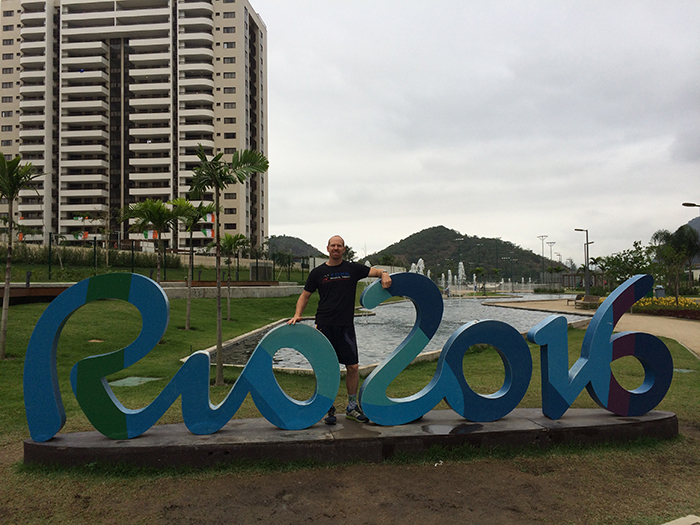
Article reposted from GCU Today
Author: mark.heller
Olympic Games are widely considered the pinnacle of professional accomplishments, and that goes for athletes and non-athletes alike.
For Grand Canyon University faculty member Michael McKenney, his shining moments were behind the scenes to help athletes achieve elite performances.
McKenney is in his sixth year as a clinical coordinator and exercise science and an athletic training professor in the College of Nursing and Health Care Professions. But it was his work outside the classroom that landed him a coveted training position this summer at the Paralympic Games in Rio de Janeiro, where elite athletes from around the world competed despite physical disabilities or impairments.
McKenney put himself in position to go to Rio when he volunteered for three weeks with the United States Olympic Committee (USOC) Sports Medicine program last fall in California. His performance, based on interviews with athletes and other volunteers, was reviewed, and he then was invited to be part of national competitions. He worked with USABMX Cycling in Colombia in June and, based on more reviews from athletes and colleagues, was chosen to help the world.
“It’s been a lifelong dream, a pinnacle of a career, a crowning jewel,” he said.
Unsurprisingly, his stories and pictures of the Olympics, Paralympics and Rio itself are numerous. His wife,Cristina, and two children (ages 9 and 11) stayed in Phoenix while colleagues and fellow faculty in CONHCP filled his classroom void.
“It takes a village for this to happen,” he said. “It takes a team effort, from my wife and kids at home to (CONHCP Dean Dr. Melanie Logue), our staff, faculty, everyone. It was humbling.”
McKenney spent his days being something of a “walk-in clinic,” helping athletes as part of a global team of doctors, trainers and sports medicine personnel working with athletes from several countries in an interdisciplinary setup covering several sports. He helped with upper respiratory illnesses, neck muscles in knots from sleeping on the plane, bruises, muscle and tendon pulls, and the common cold — everything except surgery.
The rest of his time was split between being at the events and exploring the city and region of Brazil: beaches, biking around the city, visiting remote locations and eating indigenous cuisine. Contrary to reports of security issues before and during the Olympics, he never felt unsafe.
“They all wanted to talk and explain everything about Brazil and Rio,” he said. “The water and sewage issues were no joke, but they were wonderful hosts.”
He since has returned to teaching and coordinating the sports medicine program at GCU with an eye toward spot helping at a future Winter Games — Olympic or Paralympic.
Having never been to Brazil, McKenney returned home with new perspectives and knowledge easily acquired when working next to some of the world’s best within medicine and athletic training. That means the rewards he reaped from those three weeks will be imparted upon his GCU students.
“These things benefit students when faculty attend events like these,” he said. “Faculty learn and bring things back to share. The college and GCU benefit from having employees sharing and learning from others around the world. It allows us to grow individually, improve our resources, and this progression flows to students and the University.
“It puts all of these things on display, so ultimately everyone wins.”